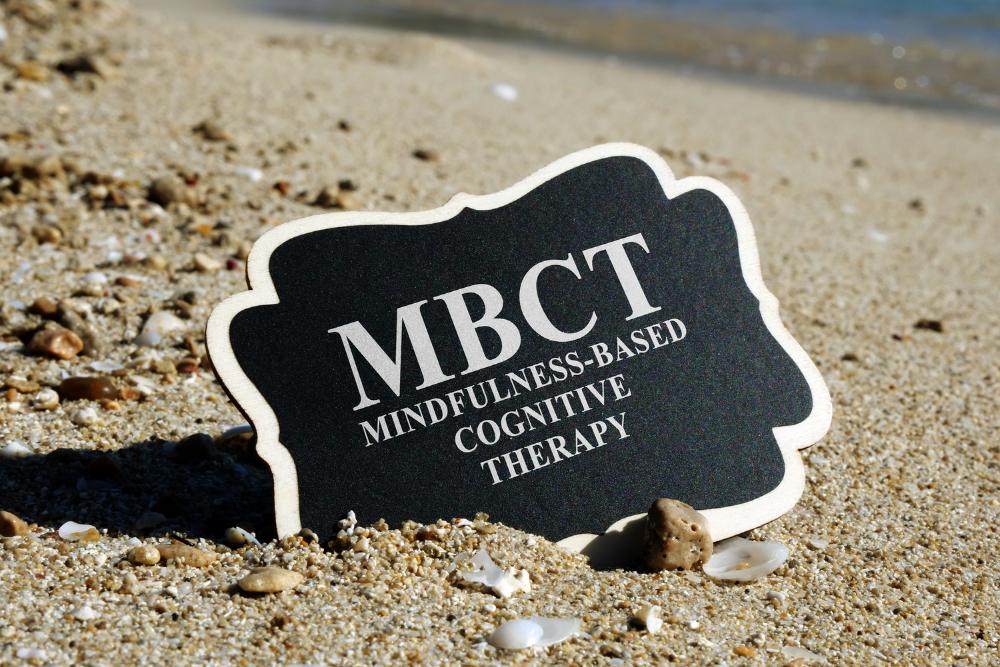What Is Neuropsychology? When it comes to clinical psychology, there are different fields within this…

Mindfulness Based Cognitive Therapy with People at Risk of Suicide
One of the common issues that causes a patient to seek out therapy is depression, and depression and similar issues can lead to attempted suicide— or those dealing with these issues can be more at risk of suicide. One of the treatments and therapy approaches that can be used for both depression and attempted suicide is mindfulness based cognitive therapy.
Below, we will go over some more details on mindfulness based cognitive therapy, and how it is helpful for patients who are at risk of suicide.
What Is Mindfulness Based Cognitive Therapy?
Mindfulness based cognitive therapy is a therapy approach that is rooted in the practice of mindfulness, as the name may suggest. It mainly works to target the symptoms and causes of depression, and works to combine clinical applications and meditation practices, too. The overall goal of this type of therapy is to break the cycle of recurrent depression. Mindfulness based cognitive therapy is still a fairly new therapy approach, and was based upon Acceptance and Commitment Therapy from the 1980s, as well as the mindfulness based stress reduction program of the 1970s developed by Jon Kabat-Zinn.
How Does Mindfulness Based Cognitive Therapy Work For People At Risk of Suicide?
Now that you have a more detailed definition of this therapy approach, we will go over how it is implemented, especially for those at risk of suicide. Like many therapy approaches, this will begin to take effect over time. When treating suicidal thoughts or attempts specifically, the therapist will go through a chain analysis of the event, a safety plan, and other steps such as skill building to deal with depression and affect suicidal ideation. These will include several one on one sessions, and sometimes family sessions, too. These are typically weekly sessions with the therapist and patient, and average around 12 sessions long.

Impacts of Mindfulness Based Cognitive Therapy In Patients
As we went over above, mindfulness based cognitive therapy works over time to teach patients how to better deal with their thoughts, emotions, and internal events to deal with issues such as attempted suicide. But why does this particular therapy approach work?
Read on to learn some more about the main effects that mindfulness based therapy has for its patients, so that you can better understand how it works to target depression and suicidal ideation.
Accepting Your Thoughts
One of the main things that mindfulness based cognitive therapy teaches patients is to accept their thoughts, and how to do so. When practicing mindfulness, one of the tenets is to accept your thoughts instead of hiding them or pushing them away. Instead, you should give these thoughts space. By taking the time to address your thoughts, even negative ones, and resisting letting these thoughts affect you, then you can build better cognitive function. The teachings and approach of mindfulness based cognitive therapy helps to give patients the tools they need to allow these thoughts to flow through the mind and then move on, rather than getting hung up on the thoughts.
Eliminating Issues
Mindfulness based cognitive therapy also teaches patients how to eliminate issues or dilemmas as they crop up. This is so important because one of the issues that contributes to depression is the inability to solve these sorts of problems or issues. When a solution does not seem clear, then negative self talk begins. This can break a person down and deepen their depression or even lead to suicidal thoughts and suicidal behavior. The mindfulness based cognitive therapy approach can help you to learn to accept problems as they come, as this is something to get used to in life.

Frequently Asked Questions
What are the problems with mindfulness-based cognitive therapy?
Not all therapy approaches will work for all people, and they will have their own benefits and shortcomings, too. It is important to be aware of this when going over a treatment plan. When it comes to mindfulness based cognitive therapy, there have only been small sample sizes when researching effects, for instance. In some cases, this approach can even increase negative emotions instead of decreasing them.
Does mindfulness-based cognitive therapy prevent relapse of depression?
Mindfulness based cognitive therapy can help to prevent the relapse of depression, as it helps to deal with the negative emotions and thought processes behind depressive disorders, for one thing. Those who have recurrent depression, especially those who are experiencing increasingly pronounced residual symptoms, are typically able to benefit from mindfulness based cognitive therapy. It is important to remember that every person’s situation is different, and their response to a therapy approach may therefore differ as well. However, overall, mindfulness based cognitive therapy has been found to work for most who have suffered from depressive symptoms and want to prevent relapse of depression.
Several studies have shown that MBCT is effective in reducing the risk factors of relapse in people with a history of recurrent depression. A 2015 meta-analysis of 10 randomized controlled trials found that MBCT was more effective than usual care or placebo in reducing the risk of relapse over a 60-week follow-up period.
Furthermore, a study published in The Lancet in 2018 found that MBCT was equally effective as maintenance antidepressant medication in preventing relapse in individuals with a history of recurrent depression. The study followed participants for two years and found that both MBCT and antidepressant medication significantly reduced the risk of relapse compared to placebo.
Overall, the evidence suggests that MBCT can be an effective intervention for preventing relapse in individuals with a history of major depression, particularly those who have experienced recurrent episodes of depressive symptoms. However, it is important to note that MBCT is not a substitute for professional medical advice or treatment and should be used in conjunction with other forms of treatment as appropriate.
What is cognitive therapy for suicide prevention?
There are certain therapy approaches that have been found to be more effective in preventing suicide ideation— which often stems from other mental disorders or mental health issues that may be being treated. Cognitive behavior therapy is one of the therapy approaches that is typically recommended for for depressed patients and suicidal patients.
Cognitive therapy for suicide prevention is a type of psychotherapy that focuses on identifying and changing negative thinking patterns that contribute to suicidal thoughts and behaviors. It is based on the idea that suicidal thoughts and suicidal behavior is often the result of distorted and negative thinking patterns.
In cognitive therapy for suicide prevention, the therapist works with the individual to identify and challenge their negative thoughts and beliefs about themselves, their future, and their relationships with others. The therapist helps the individual to reframe these negative thoughts and beliefs into more realistic and positive ones and helps reduce suicidal ideation.
The therapy also involves teaching the individual coping skills to manage distress and negative emotions, such as mindfulness meditation, relaxation techniques, and problem-solving skills. The therapist may also work with the individual to develop a safety plan that outlines specific steps they can take if they experience suicidal thoughts, feelings or suicidal behavior.
Cognitive therapy for suicide prevention has been shown to be effective in reducing suicidal ideation and behavior in individuals with a history of suicide attempts or self-harm. It is often used in combination with other forms of treatment, such as medication and support groups, to provide a comprehensive approach to suicide prevention. It is important to note that cognitive therapy for suicide prevention should only be conducted by trained mental health professionals who have experience working with individuals with suicide risk.
What is mindfulness-based cognitive therapy in patients with depression?
Mindfulness based cognitive therapy, or MBCT, is often used to help patients who are suffering from chronic depression. It does so by helping them to recognize and become more aware of their internal events, such as thoughts, emotions, or bodily sensations. Once aware of these, they are helped to learn how to change the ways that they then relate to these internal events.
Mindfulness-Based Cognitive Therapy (MBCT) is a type of psychotherapy that combines elements of mindfulness meditation with cognitive-behavioral therapy (CBT) to help individuals with depression.
MBCT aims to help individuals identify and change negative patterns of thinking and behavior that can contribute to depression. It teaches individuals to become more aware of their thoughts and emotions without judgment, and to develop more adaptive ways of responding to difficult situations.
In MBCT, individuals typically attend group sessions with a trained therapist, where they learn mindfulness meditation techniques and cognitive-behavioral strategies. The therapy usually involves eight weekly sessions, each lasting about two hours.
Several studies have found that MBCT can be effective in reducing symptoms of depression in individuals with a history of recurrent depression. A meta-analysis of 11 randomized controlled trials found that MBCT was more effective than usual care or placebo in reducing symptoms of depression in individuals with a history of recurrent depression.
MBCT has also been shown to be effective in reducing the risk of relapse in individuals with a history of recurrent depression. A study published in The Lancet in 2018 found that MBCT was equally effective as maintenance antidepressant medication in preventing relapse in individuals with a history of recurrent depression.
Overall, MBCT is a promising treatment option for individuals with depression, particularly those with a history of recurrent episodes of depression. However, it is important to note that MBCT should only be conducted by trained mental health professionals who have experience working with individuals with depression.



